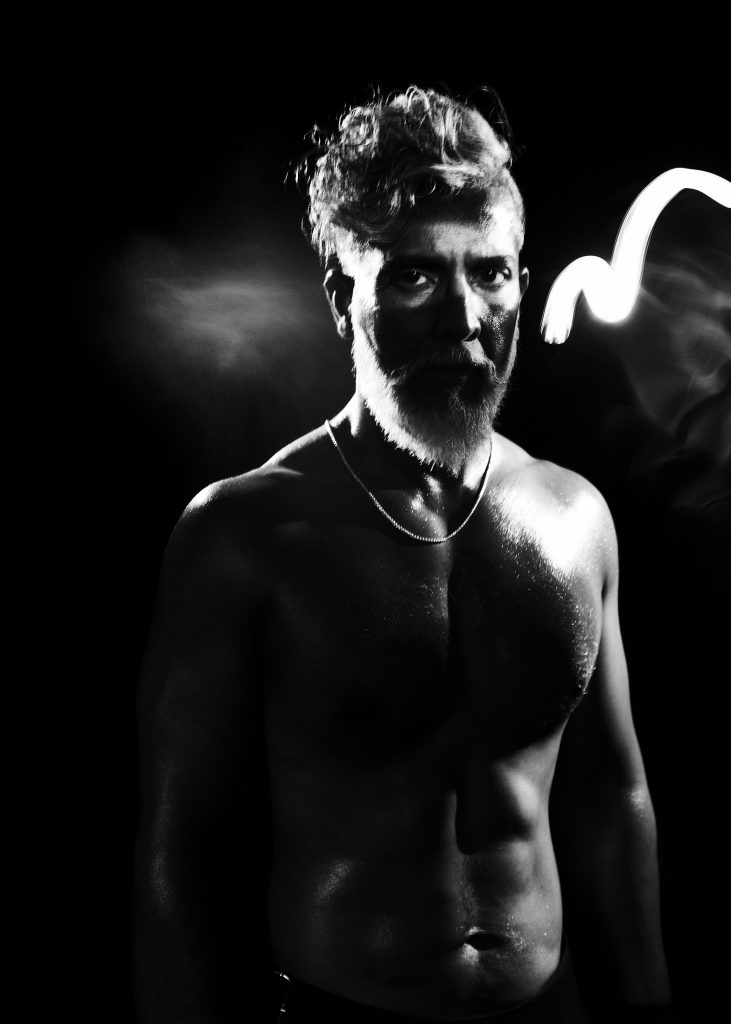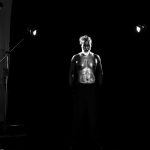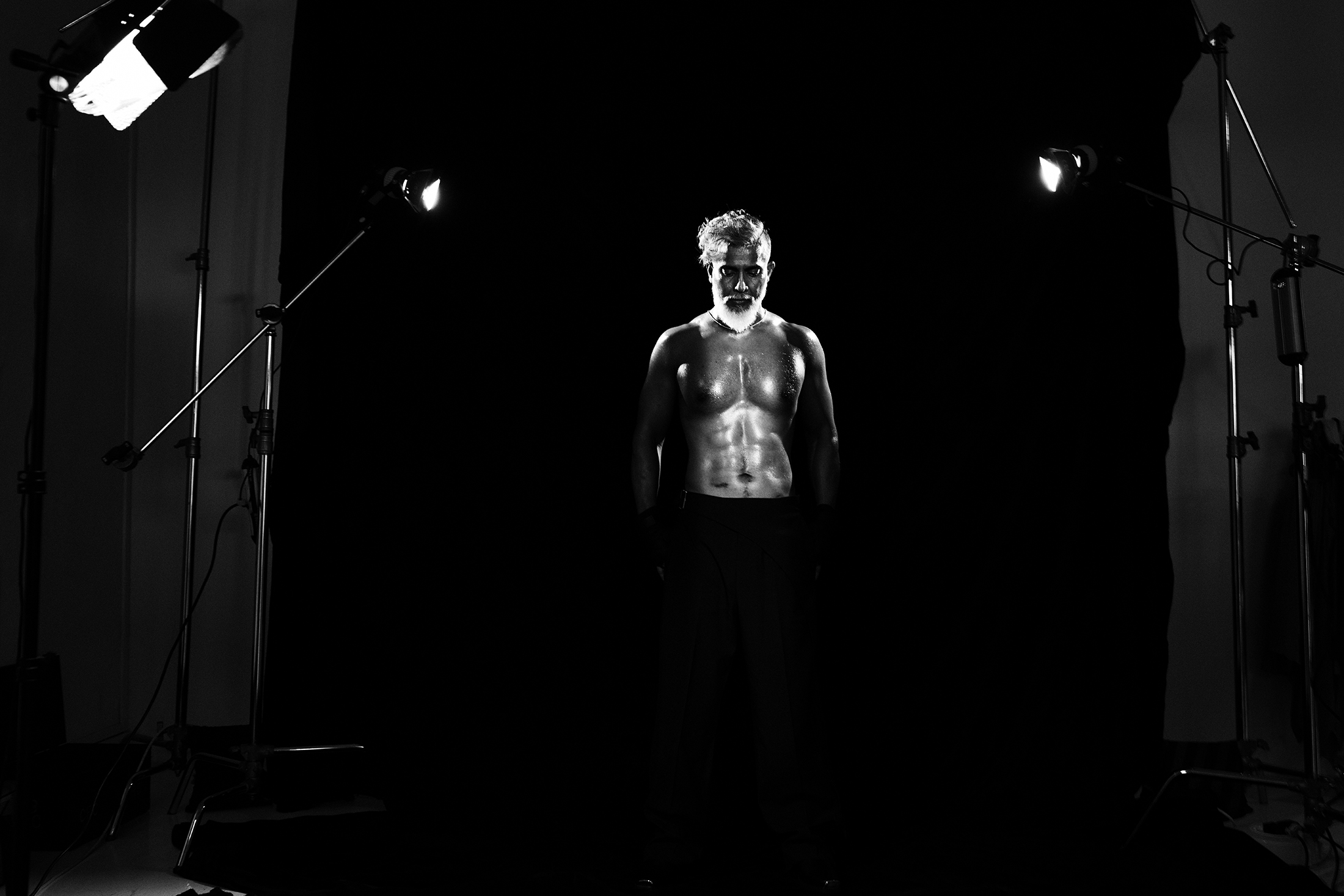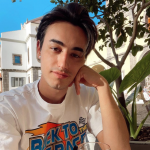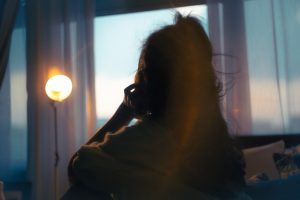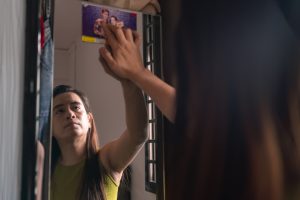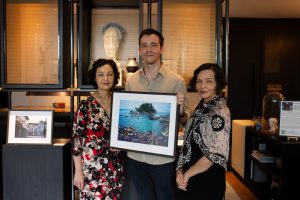All images by Nicky Loh for Rice Media
“This is where I carried a stoma bag,” Arun Rosiah says in the spotlight of a dark studio, pointing to the side of his waistline. A relatively faint scar remains there, a symbol of his battle with stage 3 colorectal cancer. His toned physique shines under a layer of oil a set assistant smothered on him, his dominating presence dissolving the fragility we conventionally associate with cancer survivors.
“Wah, it’s like a Greek god,” I hear someone whisper from the sidelines.
ADVERTISEMENT
“After the first major surgery, everything went downhill,” the 58-year-old shared when we got a chance to speak. He tells me how he struggled with his body image after his diagnosis in 2015, and above all, after the invasive treatments he underwent.
“Just after eight hours, I was transformed into a bag of bones.”
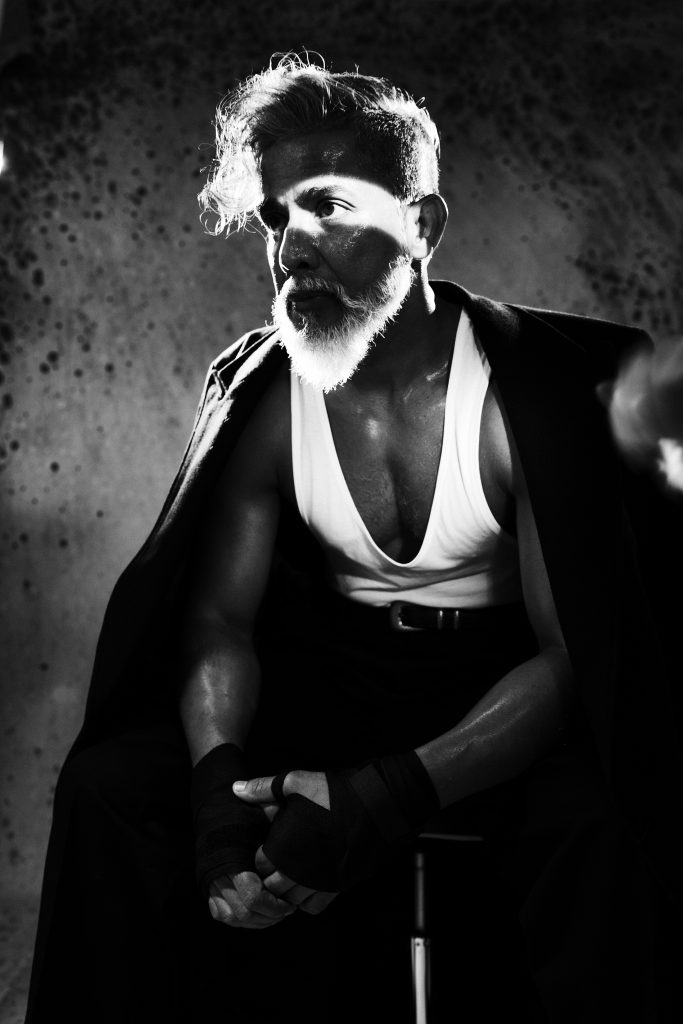
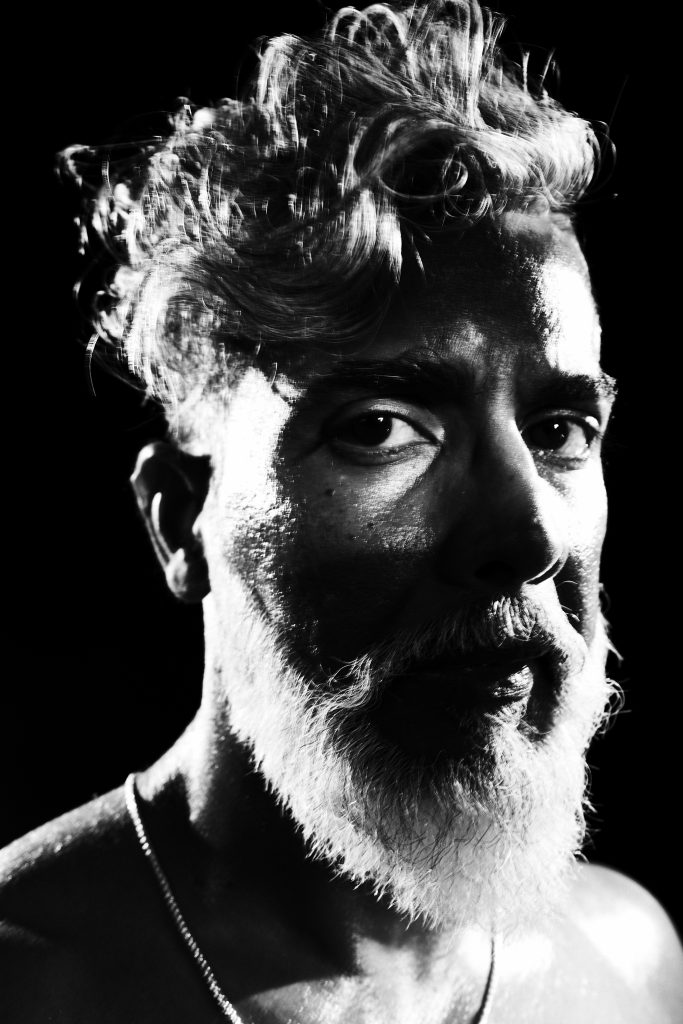
These studio photographs of Arun were created as a collaborative and personal project initiated by Nicky, a photographer and fellow cancer survivor.
“After getting cancer, I went through a major internal shift,” Arun confessed. “Starting with my kids. I was a very top-down dad. I was very strict, I never related to their point of view, and it was always my perspective that was right. Same issue with my wife. I left most of the responsibilities to do with our kids to her.”
“Prior to cancer, I was very egotistical. I ran marathons, went to the gym, attended professional fitness courses—it was all about me. I never involved my family in my decisions. “
Arun has no qualms about getting candid. He openly tells me about the pains that came from the radiation therapy directed at his anal area, and about how he struggled with his self-esteem after chemo. But what strikes me most is when he tells me how at one point in this treatment process, he wished he was dead.
“The pain was so intense,” he recalled. “I’m a very positive person, but for a fleeting moment I thought I wouldn’t mind if God took my life away.”
“It made me so empathetic to people who are vulnerable and who are marginalised. It was like a calling. I told myself, this is the reason why people who struggle with depression take their own life, they cannot handle it. If I cannot handle this pain, imagine people who… “ Arun stops his sentence midway through his sentence.
“I have a brother who committed suicide,” he shares after taking a breath.
“I was angry with him because I was quite close to him. But now I understand that there is a reason why some people may take that step… maybe when they get to a point of no return.”
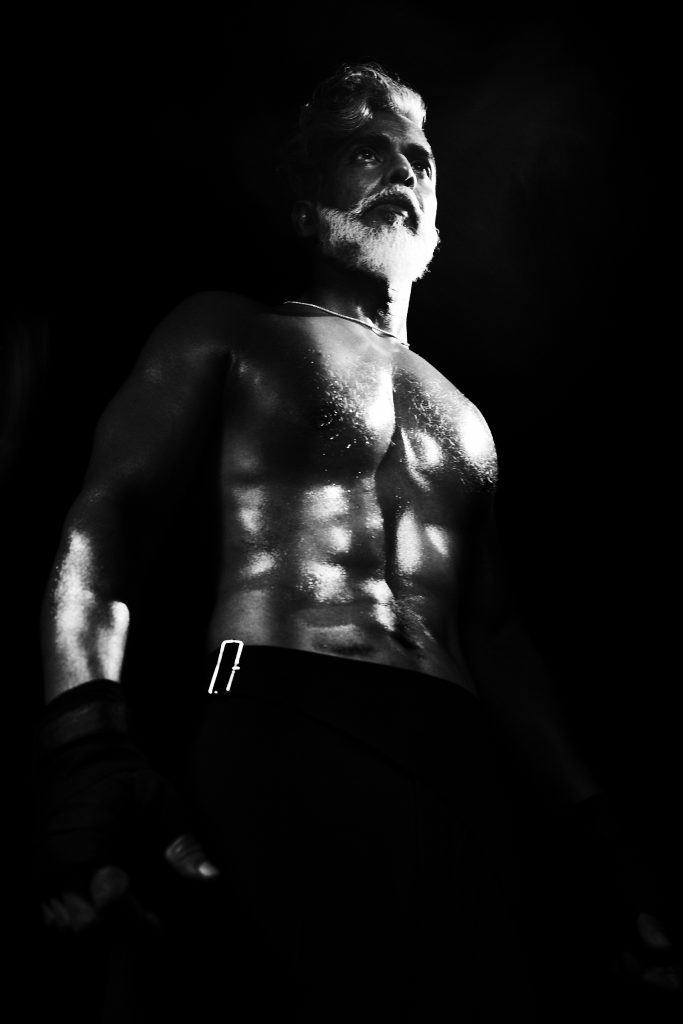
Nicky Loh, the photographer behind the shoot, first read about Arun’s story when the Straits Time profiled him in November 2021. A lymphoma survivor himself, he wanted to reach out, but he didn’t know how.
ADVERTISEMENT
“One serendipitous day,” Nicky tells me, Arun sent out a message in a cancer chat group Nicky was a part of. From there, he contacted him and pitched him the idea of a portrait shoot, to which Arun agreed.
“My first thought when I met him was that I hope I look like him when I’m his age,” Nicky laughed.
“Beyond Manhunt, Arun’s presence testifies how cancer is not a death sentence, and that there are a myriad of opportunities even though you have been stricken with cancer.”
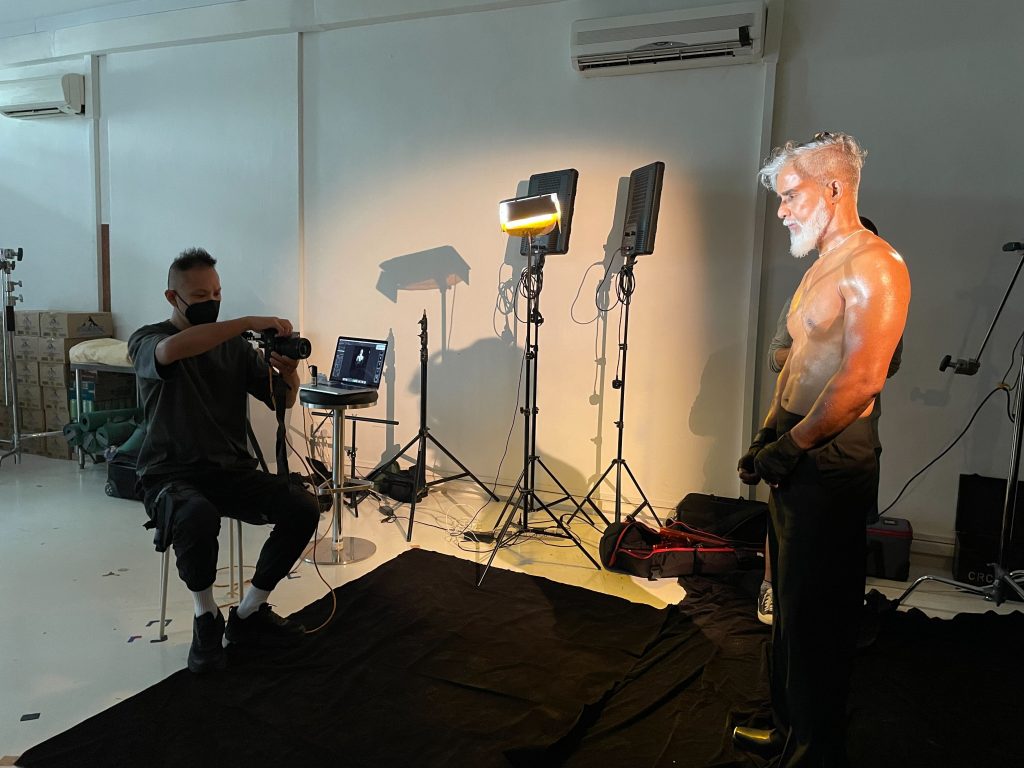
Arun has been a teacher for 28 years, having only recently resigned from his latest job at a primary school. When I asked him why he resigned, he said that he wanted more time to take care of his health and be with his family.
But before he was a teacher, Arun’s path to getting where he is now was more than just tumultuous. He took his A levels four times to achieve his desired grades, worked as an insurance agent full time while studying, and only got into the National Institute of Education (NIE) after his fifth attempt.
“Did your own setbacks in school make you a more empathetic teacher?” I asked Arun.
“I particularly struggled with math when I was in school, so I always tell my students that. I want them to know that it is ok to struggle in school.”
While Arun’s students have often felt inspired by his own story, he tells me the only resistance he has faced has come from parents.
“One of my students went home and told his mum that I failed math, so she went on to complain to the school and asked them how I could be allowed to be a teacher,” he recalls. “But what the student didn’t tell his mum is that I eventually did pass my math exam and even got a credit—that’s how I managed to get into NIE and become a teacher.”
“It’s a process. A failure isn’t a setback unless you let it become one.”
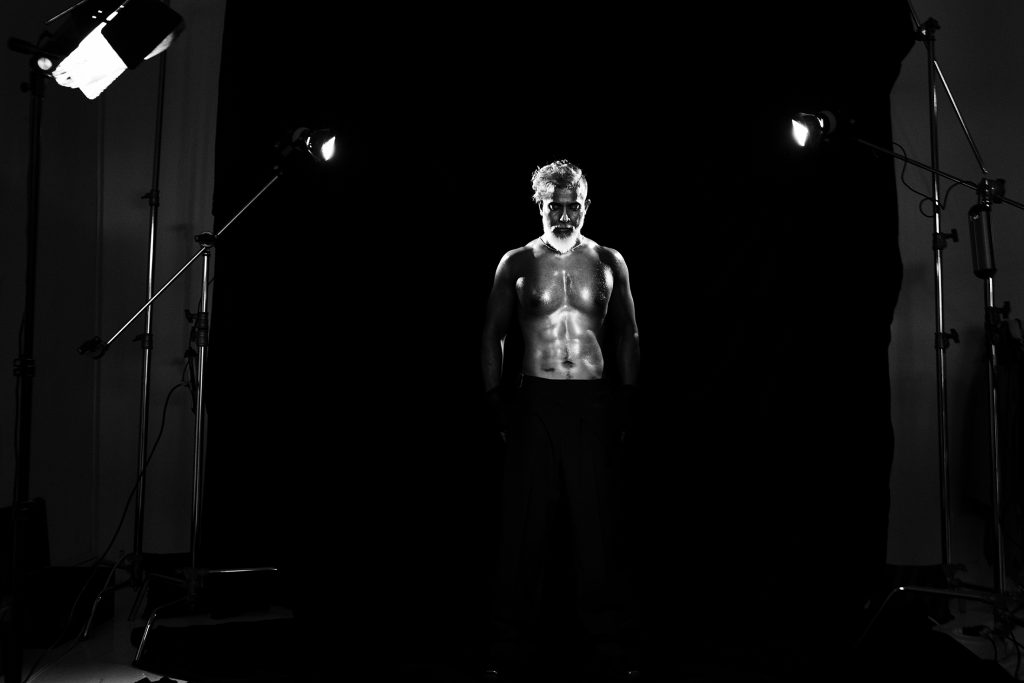
One of the biggest challenges for Arun during his treatment was watching his body wither.
He compares his relationship with his body image to the stock market. “It’s volatile,” he says. “It goes up really high, then crashes unexpectedly.”
He tells me how at one point he had become so skinny he felt too self-conscious to go to school and teach, leading to him taking unpaid leave. so he took unpaid leave.
“I was so scrawny compared to the buff PE teacher I used to be.”
As he continued with treatment, his sex life took a hit as well. His sexual organs were impacted by the radiation therapy—he suffered from incontinence issues, and sex was out of the question. However, Arun said this was an incredible opportunity to build on his relationship with his wife. They had to adapt to changes, realign their priorities, and even normalise the “new normal” of sex for seniors, as Arun calls it.
“What has come out of this experience is that my wife and I communicate more and are physically closer in many ways,” Arun shares. “She is my best soul mate.”
He even confesses that he is planning to propose to her again to renew their wedding vows, but he refuses to tell me when, as he knows his wife will be reading this.
“I like to keep some anticipation,” he laughs. “Now that climax will be mind blowing for her.”
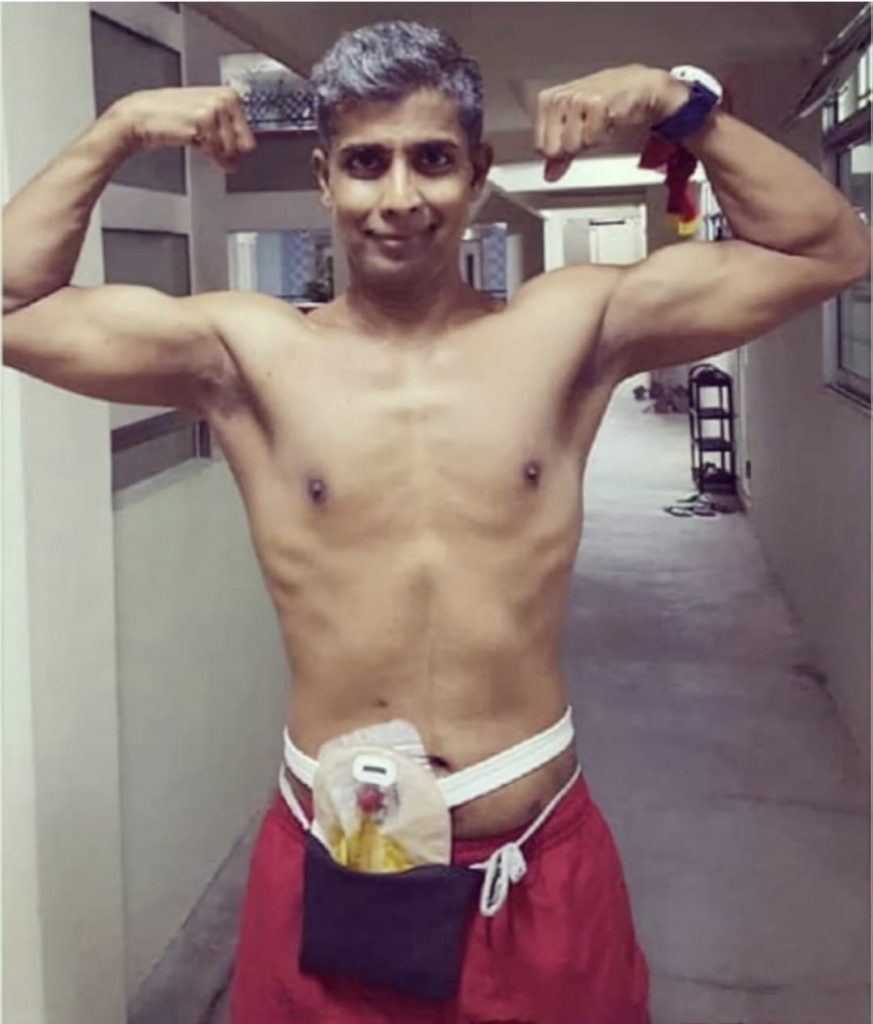
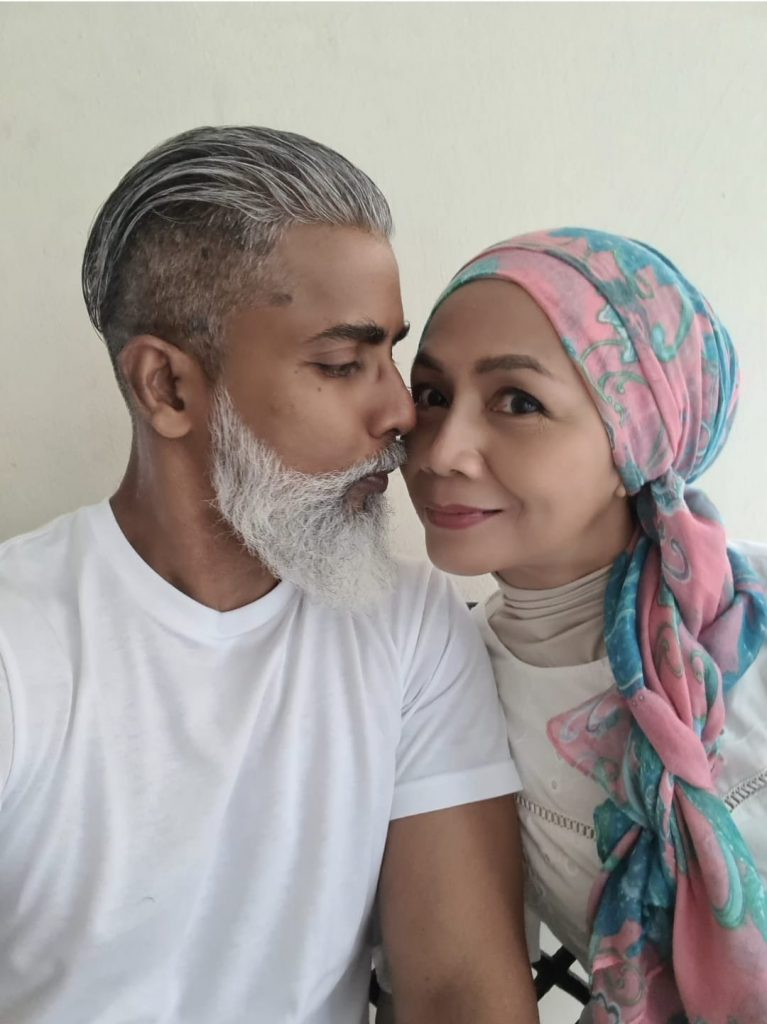
At the back of the studio, his wife Rosiah sits on a wide couch, her presence as gentle as the look she gives Arun while he poses. She rarely comes closer to see the images, yet I catch her sending over supportive nods from time to time.
I sit with her for a while, and we naturally start talking about Arun. Rosiah tells me how Arun has been a warrior his whole life, and that what he went through since his childhood has prepared him to overcome cancer.
He struggled with school as a child, moved out early and had to support himself, juggled multiple careers, had a brother die from suicide, and witnessed his sister deal with mental health struggles, among multiple others.
Undoubtedly, Arun has fought hard. But what many don’t see is how essential Rosiah has been in the journey. She shares how she had to reduce her commitments as a teacher to care for him during his treatment. At the time, she essentially went from having one full-time job to two. Emotionally, she also held the family together over one of the most difficult periods of their lives.
But the beauty in Arun’s and Rosiah’s story is how they fought as a team, and as a result, have carved out a beautiful marriage that is so much stronger than before.
“I want to give people with low self-esteem inspiration to build self-confidence,” Arun tells me, especially seniors who want to be brave and live boldly. “Using a lighthouse analogy, I want to be a guide and show the light for anyone looking to navigate their own dark journey.”
